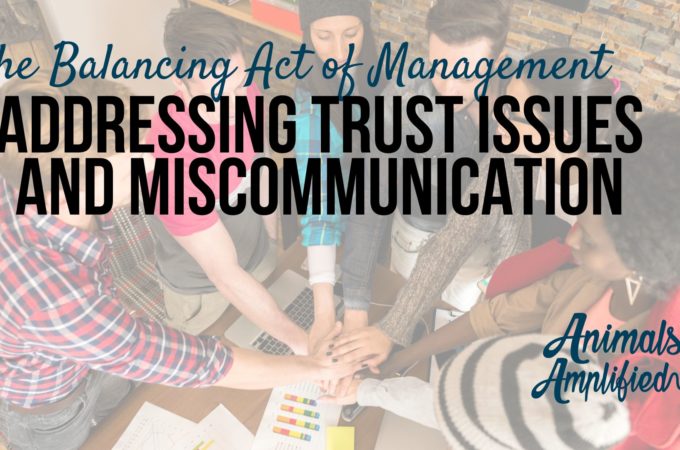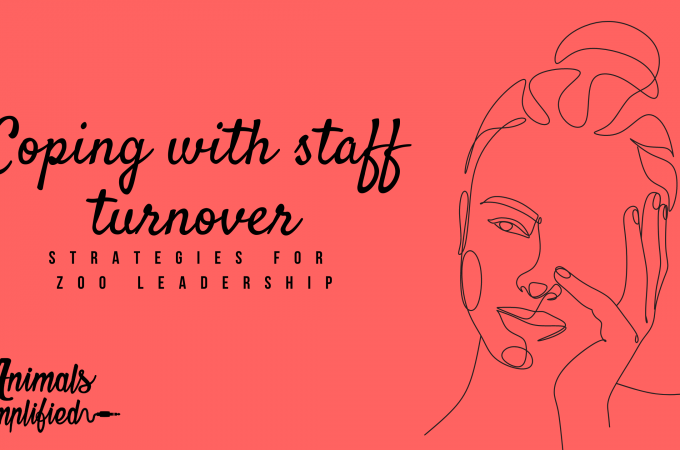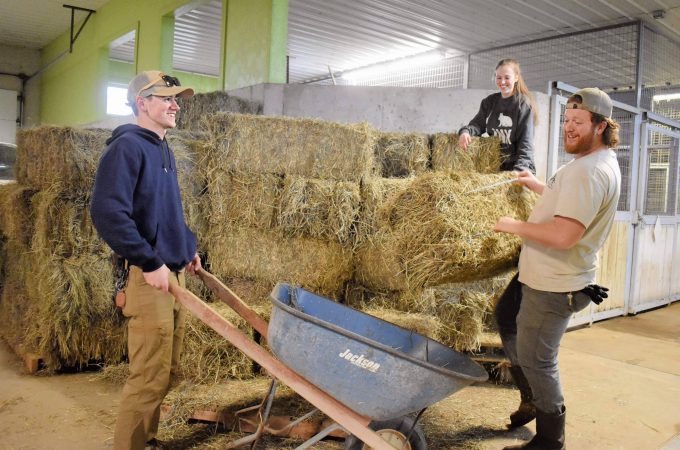
Exploring the Pros and Cons if Zoos Unionize
There has been an increasing discussion in our industry on the unionization of zoos. Union representatives will be biased on behalf of the union and its goals. Zoos will be biased on behalf of the institution and its goals. My goal will be to provide you with as much information on both sides regarding the factual pros and cons of when zoos unionize.
The Pros List for Unionization of Zoos
We all know zookeepers are underpaid, overworked, and unappreciated. The work is physical and demanding, and the nature of the zoo business doesn’t make it a lucrative job for front-line employees. Unionization is an option that some zoo employees may consider to improve their wages, benefits, and working conditions.
Improved Wages
The most common reason zoos unionize is in search of increased wages. In a survey I conducted a few years ago, I did notice that many city and county ran zoos paid higher salaries. While I didn’t ask if zoos were part of a union, my assumption is city and county facilities are more likely to be unionized. Unionized zookeepers can see an increase in their hourly wages, a rise in the minimum wage, and better benefits such as health insurance, retirement plans, and paid time off. AFSCME’s website claims $10,000/year higher wages across all their union contracts. Union contracts often include holiday pay which has long been an issue for zookeepers who are required to work on holidays.
Improved Working Conditions
Unionized employees may also see improvements in working conditions, such as safer equipment, hazard pay, and job security. When talking with zookeepers who have worked for union zoos, they all cited eliminating favoritism and merit-based increases as a perk of being union. Some mentioned the requirement of lengthy paper trails before an employee could be terminated as a bonus to help protect them from biased leadership.
Some contracts can also require that union representatives attend any disciplinary meetings. Most keepers I talked with spoke a lot about eliminating favoritism. It seems like many keepers are more worried about favoritism than sanctioned incompetence. While all of these vary based on contract, this appeared to be an overall bonus for pro-union employees.
Collective bargaining
Unionized employees can negotiate with the zoo management through collective bargaining. This allows them to have a voice in the workplace and have their concerns addressed. Not being heard by leadership is the most common complaint during my consulting. Sharing concerns with your union representative and bringing them to management’s attention can be a less aggressive way for employees to raise concerns. There is also power in numbers, regardless of if zoo employees band together to unionize or if they simply raise concerns to leadership in a united fashion.
Zoo Employee Unification
Zookeepers say the process of unionization of zoos brings teams together. “I honestly have never felt closer to my fellow keepers than I have through this whole process. We truly have united together for the betterment of our future. We all love the zoo we are at and want to stay long term. This was our way of making that dream become a realistic reality.” says one pro-union zookeeper.
The Cons for a Zookeepers Union
While there isn’t an official zookeepers union, many zookeepers are represented by larger union companies like AFSCME in the United States and CUPE in Canada. These organizations generate income and make a living by collecting union dues. There are downsides when zoos unionize; we’ll hit some of the main points here.
Reduced Flexibility
Union contracts often include strict rules and regulations regarding employee schedules, overtime, and job assignments. Strict rules can make it more difficult for employees to change shifts or take on additional responsibilities and can limit their ability to advance in their careers. For example, the contract dictates that most senior employees are entitled to holidays off at one facility. However, at this particular zoo, all the most senior employees are in one area, creating a challenge for scheduling and animal care on the holidays.
The contracts don’t always allow for merit-based increases, bonuses, additional cost of living increases, etc., outside negotiation time. When zoos unionize, keepers might make less than they would have without the union contract. Leadership and volunteers can’t do the job of union employees since the union protects their positions. For example, if a keeper calls out, a manager might not be allowed to fill in for a missing keeper. Unionization in zoos can solve the underpaid problem but sometimes exacerbate the overworked problem.
“This touches on the big downside I have heard about unions. You can be a primate expert who has spent five years working in that department. If a promotion opens up, a bird keeper with ten years in the Union will get the job because of seniority. Unions are focused on getting workers more money and protection. They are not focused on pairing skills with animals.” Says one zookeeper. Others ensure this type of situation is covered in their contracts.
Increased Costs
Union dues and fees can add up, and some employees may not want to pay them. Additionally, unionization can lead to higher labor costs for the zoo, which may be passed on to employees through reduced benefits, elimination of professional development, reduced resources for animal care, or higher ticket prices. Sometimes employees might not even feel the pay increase they negotiated because it’s offset by additional dues and/or benefit costs.
What is the cost of unionization? Union zookeepers usually pay 2 to 5% of their salary in union dues. An increase in operating expenses of 30% is more in line with the cost of the unionization of zoos. A union can also cost a community lost jobs, reduced competitiveness and productivity, strikes, and diminished consumer confidence.
Potential Conflicts
Unionization can lead to conflicts between management and union representatives, creating a hostile work environment and making it difficult for employees and leadership to do their jobs. “It seems like a real vote of no-confidence for leadership.” Said one zoo director on the topic of the unionization of zoos. “As a leader, you wish they would come to you first and try to negotiate before tying everyone’s hands with the union.” Many zookeepers feel like they’ve raised their concern in a way that can be heard by leadership. However, in my consulting experience, this is a repeated challenge as keepers and leaders aren’t speaking the same language.
Strike and labor disruption
Strikes or other labor disruptions can occur during contract negotiations or disputes between the union and management. This puts employees in the position to cross picket lines to care for the animals they love and face fines and penalties for not striking. Some zoos consider this in their contracts and write “no-strike” rules to protect essential animal care.
Representation
“Our union is a government union, so eligible union jobs in the city network are all a part of the union, not just zoo employees, so zoo-specific needs are lost in the shuffle often since we do not have a large representation compared to other city departments.” Says one union zoo employee. It’s important to remember that unions make their money from union dues. So if they have multiple “irons in the fire” they don’t have much choice but to cater to the section of the union with more extensive representation and larger revenue potential.
Should Zoos Unionize
The unionization of zoos is a complex issue that requires careful consideration of the pros and cons. On the one hand, unionization has the potential to bring many benefits to zoo employees, such as improved wages, benefits, and working conditions.
On the other hand, it can lead to labor disruptions, reduced flexibility, and opportunity and might not end with the desired results. It’s also important to remember that nothing is guaranteed, so what the union representation promises may not be included in the contract negotiation.
Ultimately, whether or not zoos should unionize is a decision that should be made by the employees themselves, after careful consideration and non-biased research of the potential benefits and drawbacks. Employees need to get information from both sides and not rely on information from union representatives or zoo employers. Unionization is not a one-size-fits-all solution, and whether or not to unionize should be made on a case-by-case basis for each zoo.
Read more about the process of how zoos unionize, a case study on union zoos, and about zookeeper wages and salaries.





